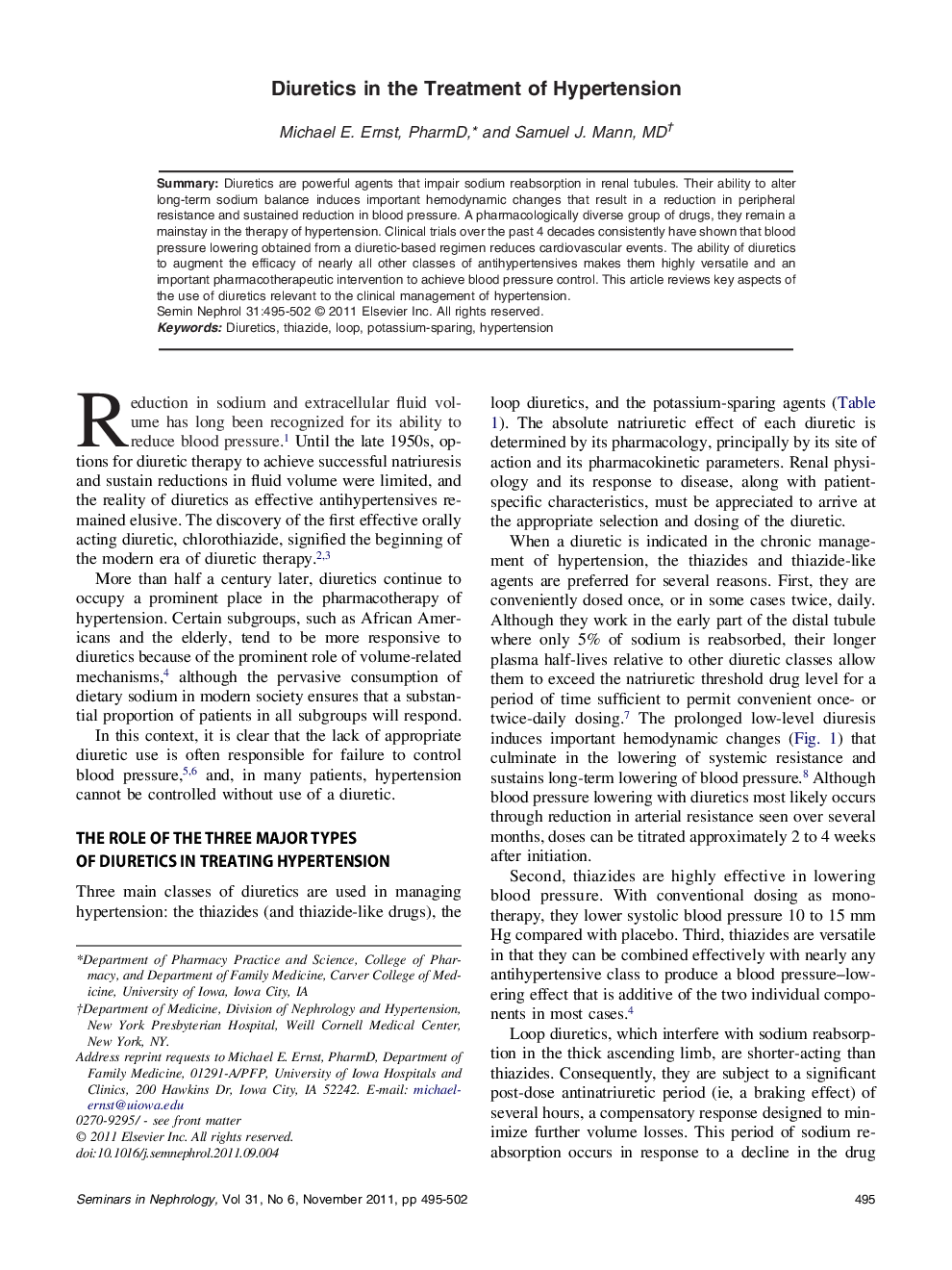| Article ID | Journal | Published Year | Pages | File Type |
|---|---|---|---|---|
| 3897401 | Seminars in Nephrology | 2011 | 8 Pages |
Abstract
Diuretics are powerful agents that impair sodium reabsorption in renal tubules. Their ability to alter long-term sodium balance induces important hemodynamic changes that result in a reduction in peripheral resistance and sustained reduction in blood pressure. A pharmacologically diverse group of drugs, they remain a mainstay in the therapy of hypertension. Clinical trials over the past 4 decades consistently have shown that blood pressure lowering obtained from a diuretic-based regimen reduces cardiovascular events. The ability of diuretics to augment the efficacy of nearly all other classes of antihypertensives makes them highly versatile and an important pharmacotherapeutic intervention to achieve blood pressure control. This article reviews key aspects of the use of diuretics relevant to the clinical management of hypertension.
Keywords
Related Topics
Health Sciences
Medicine and Dentistry
Nephrology
Authors
Michael E. PharmD, Samuel J. MD,
